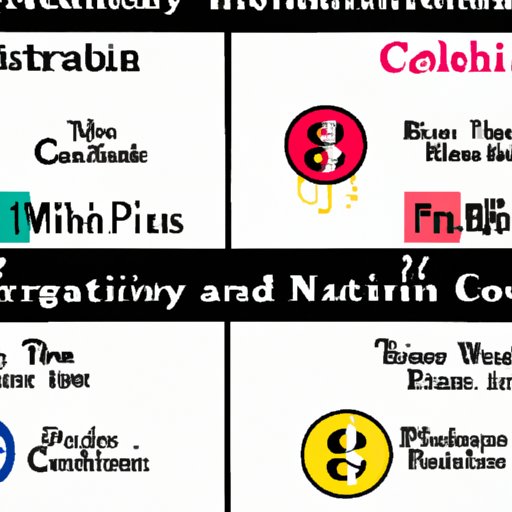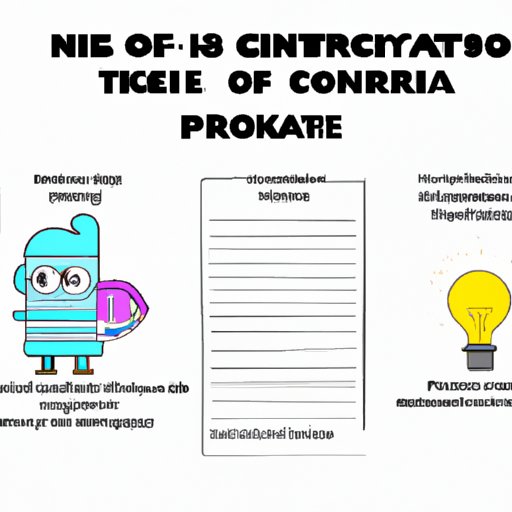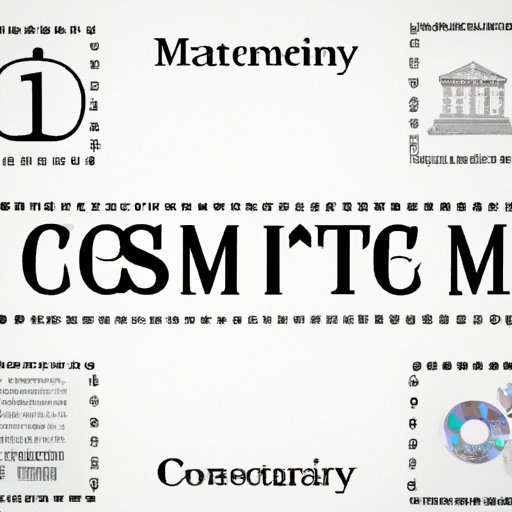Introduction
Copyright is a form of legal protection that grants exclusive rights to creators for their original works. It is designed to ensure that authors, artists, musicians, and other creators are compensated fairly for their work and that their creations can be enjoyed by others. But when was copyright invented? In this article, we’ll explore the history of copyright legislation and how it has evolved over time.
Examining the Origins of Copyright Legislation
The concept of copyright dates back centuries, with early precedents in copyright law appearing in ancient Greek and Roman societies. As technology advanced, so did the need for formalized copyright protections. The Statute of Anne, which was passed by the British Parliament in 1710, is widely considered to be the first modern copyright law.

The Statute of Anne and Its Impact
The Statute of Anne established a number of key principles that remain at the core of copyright law today. It granted authors the exclusive right to print, publish, and sell copies of their works for a limited period of time. It also allowed authors to renew their copyrights after the initial 14-year term had expired. According to Professor John Feather, an expert on the history of copyright law, “The Statute of Anne provided the basis for all subsequent copyright legislation in Britain, the United States, and elsewhere.”

How Copyright Laws Have Evolved Over Time
Since the passage of the Statute of Anne, copyright laws have been expanded and refined. Additional international treaties and agreements have been signed to protect copyright holders in different countries. In the US, the Copyright Act of 1976 is the primary source of copyright law, and it has been amended numerous times since its enactment.
The Role of Copyright in the Digital Age
In the digital age, copyright law faces a number of challenges. The rise of digital media has made it easier to share and access content online, creating a potential for piracy and other forms of copyright infringement. To combat this, copyright holders have employed technological protection measures such as digital rights management (DRM) systems. These systems restrict access to digital content, making it more difficult to illegally copy or share copyrighted material.
Exploring the Legal Framework Surrounding Copyright
The legal framework surrounding copyright is complex and ever-evolving. However, there are some key principles that remain consistent. Copyright holders have the exclusive right to reproduce, distribute, perform, and display their works. They also have the right to authorize others to use their works. Additionally, copyright laws provide for certain exceptions and limitations, such as fair use and educational exemptions.

What You Need to Know About Copyright Regulations Today
Today, it is important to understand your rights as a copyright holder. If you create original works, you should be aware of the laws that protect them. There are also a number of resources available to help you learn more about copyright regulations. The US Copyright Office provides information on copyright registration, copyright law, and related topics.
Conclusion
Copyright is an important form of legal protection for creators. It ensures that they are compensated fairly for their work and that their creations can be enjoyed by others. This article traced the history of copyright legislation, from early precedents to the digital age. We also explored the legal framework surrounding copyright, including key principles and exceptions. Finally, we discussed what you need to know about copyright regulations today.
(Note: Is this article not meeting your expectations? Do you have knowledge or insights to share? Unlock new opportunities and expand your reach by joining our authors team. Click Registration to join us and share your expertise with our readers.)
